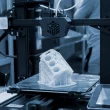In recent years, the landscape of health and wellness has evolved significantly, with a growing emphasis on holistic health trends that integrate both mind and body. This comprehensive approach to well-being is not just a passing fad but a fundamental shift in how we understand and manage our health. By focusing on the interconnectedness of mental, emotional, and physical health, holistic health trends are redefining what it means to be truly healthy.
Understanding Holistic Health
Holistic health is a philosophy that considers the whole person—body, mind, spirit, and emotions—in the quest for optimal health and wellness. According to this perspective, one can achieve optimal health by gaining proper balance in life. Holistic health practitioners believe that the whole person is made up of interdependent parts, and if one part is not working properly, all the other parts will be affected. Therefore, if people have imbalances (physical, emotional, or spiritual) in their lives, it can negatively affect their overall health.
The Rise of Holistic Health Trends
Several factors have contributed to the rise of holistic health trends. Increased awareness about the limitations of conventional medicine, a growing body of research supporting the benefits of integrative approaches, and a cultural shift towards wellness and self-care are all driving this change. Let’s explore some of the most significant holistic health trends that are shaping the future of wellness.
1. Mindfulness and Meditation
Mindfulness and meditation have become cornerstones of holistic health. These practices, which focus on being present and fully engaged in the moment, have been shown to reduce stress, improve emotional regulation, and enhance overall well-being. Mindfulness-based stress reduction (MBSR) programs are now widely available and are often integrated into conventional healthcare settings.
2. Integrative Nutrition
Nutrition is a critical component of holistic health. Integrative nutrition goes beyond the traditional focus on macronutrients and calories to consider the broader impact of food on physical, mental, and emotional health. This approach often includes personalized dietary recommendations based on individual needs, preferences, and health conditions. Functional foods, superfoods, and plant-based diets are gaining popularity as part of this trend.
3. Yoga and Movement Therapies
Yoga and other movement therapies like Tai Chi and Qigong are integral to holistic health practices. These disciplines not only improve physical strength, flexibility, and balance but also promote mental clarity and emotional stability. Research has shown that regular practice of yoga can reduce symptoms of anxiety and depression, enhance cognitive function, and improve overall quality of life.
4. Holistic Mental Health Care
Holistic mental health care is an emerging trend that addresses mental health issues through a multi-faceted approach. This can include traditional psychotherapy, as well as complementary therapies like art therapy, music therapy, and animal-assisted therapy. Holistic mental health care also emphasizes the importance of lifestyle factors such as sleep, exercise, and nutrition in maintaining mental well-being.

5. Energy Healing
Energy healing practices, such as Reiki, acupuncture, and chakra balancing, are gaining acceptance as complementary therapies in holistic health. These practices are based on the concept that the body has an energy field that can be manipulated to promote healing and well-being. While scientific evidence for some of these practices is still evolving, many people report significant benefits.
6. Digital Health and Wellness Apps
The digital revolution has brought a plethora of health and wellness apps that support holistic health practices. These apps offer guided meditations, yoga classes, nutrition tracking, and mental health support, making it easier for individuals to integrate holistic health practices into their daily lives. The convenience and accessibility of these tools are contributing to their widespread adoption.
7. Personalized Holistic Health Plans
Personalization is a key trend in holistic health. Personalized holistic health plans take into account an individual’s unique genetic makeup, lifestyle, and health history to create a tailored approach to wellness. This can involve genetic testing, personalized nutrition plans, and customized exercise programs. The goal is to provide a more effective and individualized path to optimal health.
The Science Behind Holistic Health
The growing interest in holistic health trends is supported by a robust body of scientific research. Studies have shown that integrative approaches can be effective in managing a wide range of health conditions, from chronic pain and cardiovascular disease to mental health disorders and autoimmune diseases. For example, research has demonstrated that mindfulness-based interventions can reduce symptoms of anxiety and depression, while yoga has been shown to improve cardiovascular health and reduce inflammation.
Moreover, the concept of the mind-body connection is increasingly being validated by scientific findings. The field of psychoneuroimmunology, which explores the interactions between psychological processes, the nervous system, and the immune system, provides evidence for the impact of mental and emotional states on physical health. This research underscores the importance of addressing mental and emotional well-being as part of a holistic approach to health.

Challenges and Considerations
While holistic health trends offer numerous benefits, there are also challenges and considerations to keep in mind. One of the primary challenges is the need for more rigorous scientific research to validate the efficacy of certain holistic practices. While some modalities, like mindfulness and yoga, have a strong evidence base, others, such as some forms of energy healing, require further investigation.
Another consideration is the potential for misinformation and the proliferation of unproven or unsafe practices. It is essential for individuals to seek guidance from qualified and reputable practitioners and to critically evaluate the information they encounter.
The Future of Holistic Health
The future of holistic health looks promising, with continued growth and innovation on the horizon. As more people recognize the value of an integrative approach to wellness, we can expect to see greater collaboration between conventional and holistic health practitioners. This integrative model has the potential to provide more comprehensive and effective care, addressing the root causes of health issues rather than just the symptoms.
Advances in technology and personalized medicine will also play a significant role in the evolution of holistic health. Wearable devices, genetic testing, and digital health platforms will enable more precise and individualized approaches to wellness. Additionally, ongoing research will continue to shed light on the mechanisms underlying holistic practices, providing a stronger evidence base for their use.
Conclusion
Holistic health trends are transforming the way we approach wellness, emphasizing the importance of integrating mind and body for optimal health. By adopting practices such as mindfulness, integrative nutrition, yoga, and personalized health plans, individuals can achieve a more balanced and fulfilling life. As the field of holistic health continues to evolve, it holds the promise of a more comprehensive and effective approach to well-being, one that honors the interconnectedness of all aspects of our health.












